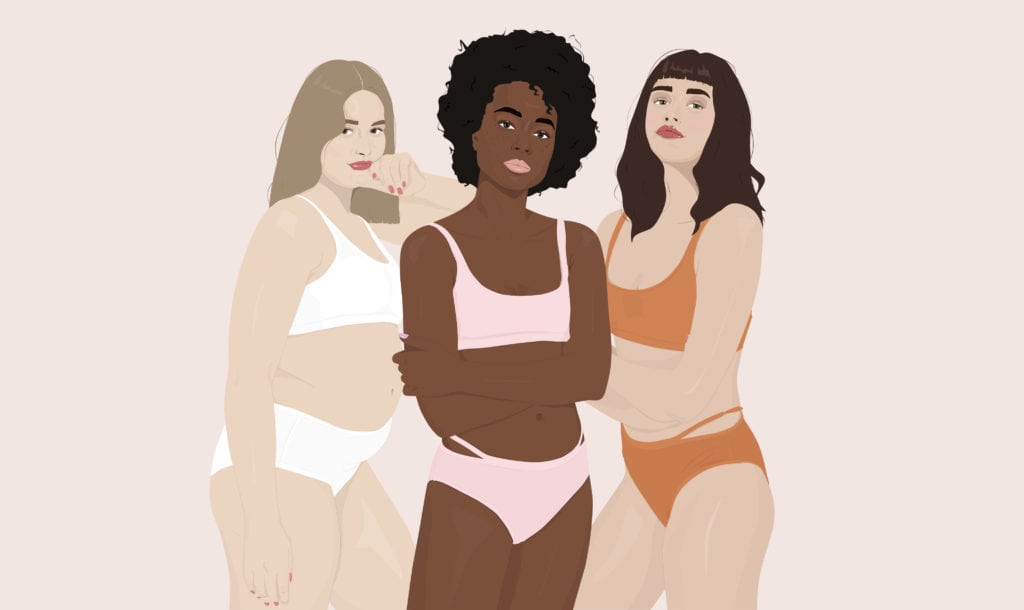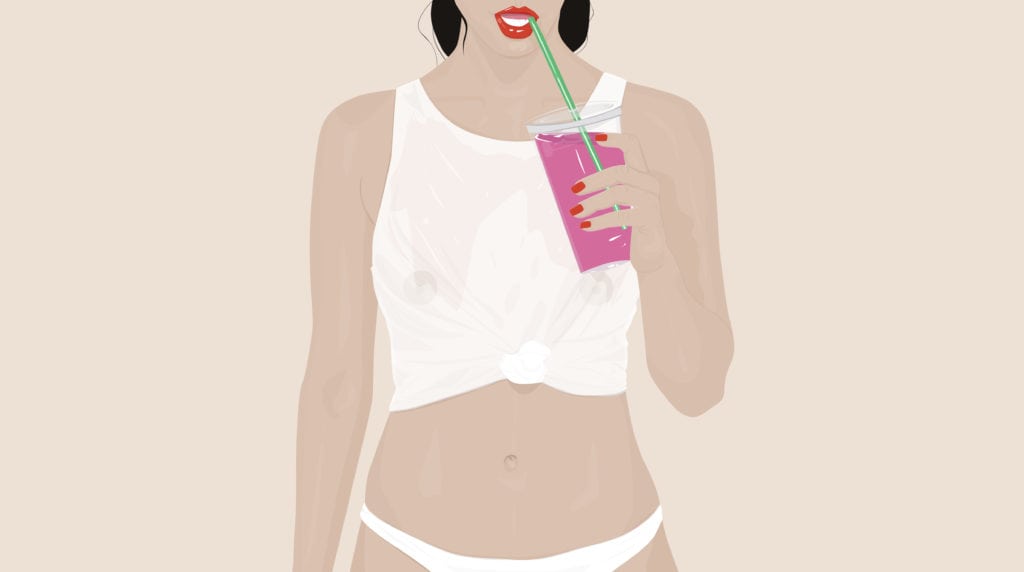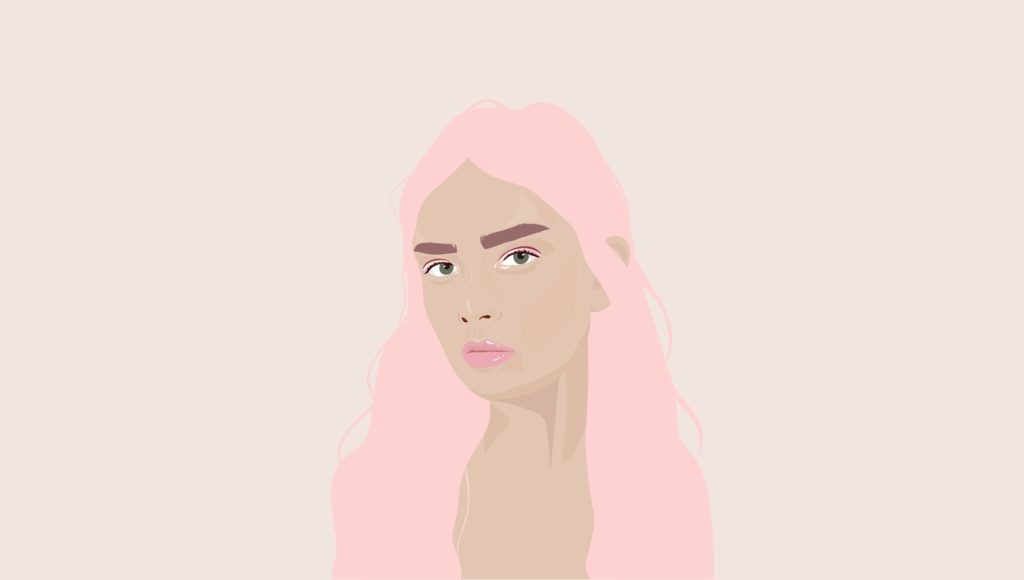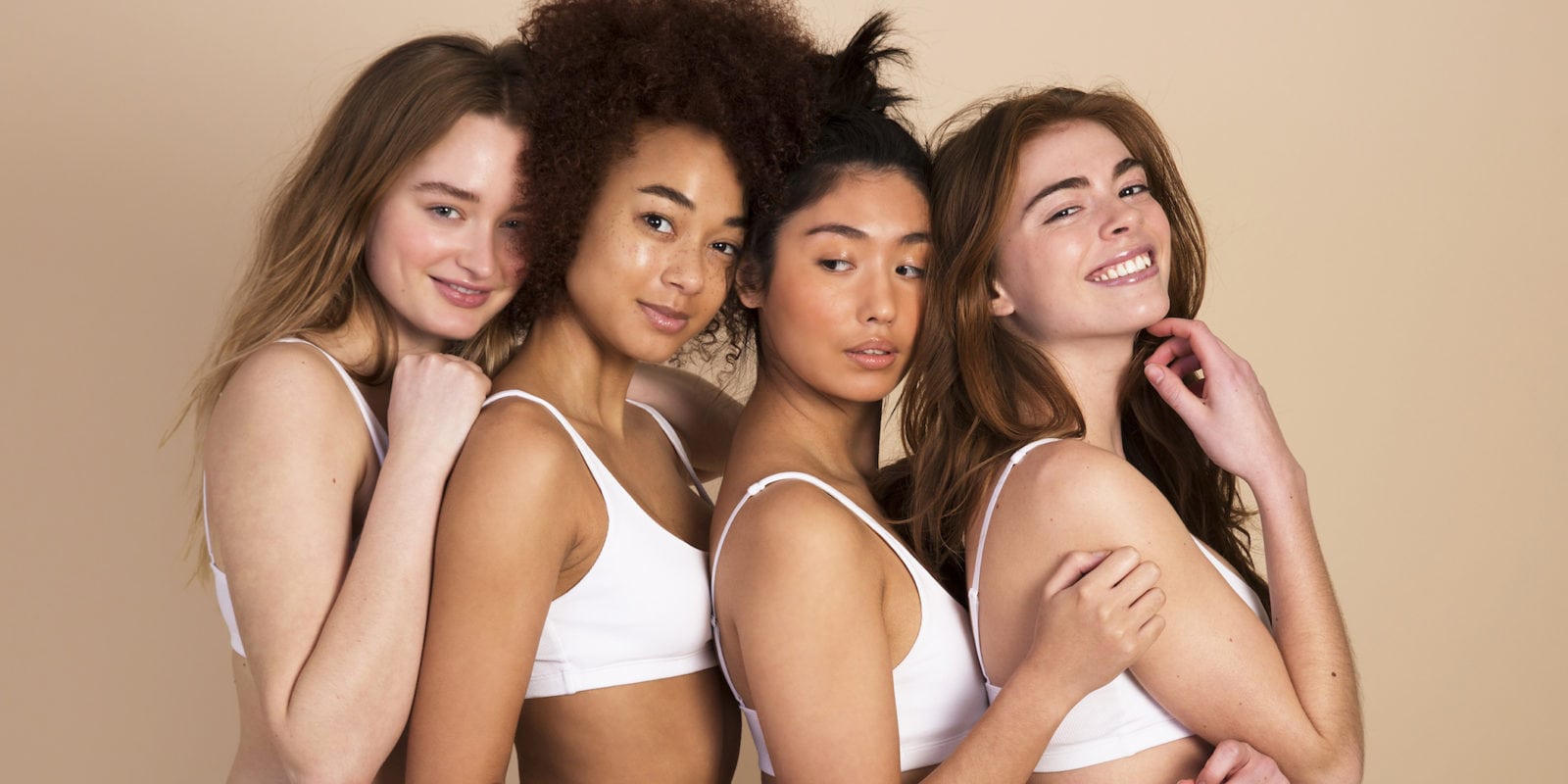Is Social Media Bad For You? Ask The Body Experts
We spend an average of two hours each day checking our Instagram and Facebook accounts – as well as Snapchat, TikTok and more, if you happen to be part of Generation Z. As well-informed women, we’re aware of the negative health impacts that being glued to our mobile phone screens all day can have – from messing with our natural sleep cycles to getting in the way of living mindfully.
But, less is known about the psychological effects and health implications of using social media itself – is social media bad for our mental health? And if so, what can we do to curb the potential damage?
We speak to Dr. Mark Silvert, Clinical Director at The Blue Tree Clinic, to hear his views on the relationship between social media, body image and mental health.

Is social media bad for mental health?
“I think that social media can be really bad for mental health. Everyone’s now obsessed with Instagram, whereas five years ago it was Facebook, so things have moved on a bit. Users get very trigger happy with their phones, looking through photos and double clicking likes… the problem is that social media portrays a false reality of everyone having an amazing time.
This is one reason why I’m so busy as a psychiatrist, I would never have predicted how busy mental health was going to become in 2018. Everybody is queuing up to get a therapist or to see a psychiatrist because they’ve got a problem with stress and social media is probably contributing to that massively.
I’m not going to post photos of my bad day, my bad mood or my empty fridge. I’m going to post photos of the great meal I’ve had for my birthday or of something really good that happens. There’s a huge bias – everyone thinks everyone is having an amazing time except for them.”
Is social media addiction actually a thing?
“It’s very addictive. People get bored with daily life and are on it a lot – they’re commuting to work or at work checking social media and it makes them feel depressed when they see unrealistic images of their friends on holiday etc. It doesn’t represent the reality of the world that we live in.
For a lot of patients, I suggest that they don’t use it – or they give it a break. You shouldn’t obsessively be drinking or taking drugs – everything in excess is bad for you. And people can often be on social media for up to 12 hours a day – checking their phones, Instagram and Facebook.”
What about social media and body image?
“There’s massive relationship between body image and social media. It’s extremely bad for girls and young women – and young men – that are looking at their friends and thinking, ‘this person looks so great and this person is in the gym all the time’.
Certainly, when I look around social media, everyone’s posting pictures of their healthy food – and they’re at the gym – and you just think; ‘I’m not eating that healthily and I’m not in the gym everyday’. People compare themselves all the time, it’s a natural human phenomena. And that can make you feel guilty and sad – especially if you’ve already got a mental health problem, such as depression or anxiety.”

Is there a link between social media and depression?
“I think it’s really really bad for people’s mental health and we’ve seen in studies that since social media has increased, depression rates have also been increasing. There’s professors of psychology and internet centres of psychology – that have actually studied this, and they suggest that Facebook, Instagram and social media is really bad for our mental health.
Not to mention the effects of trolling. We know that some people become completely dis-inhibited – the classic keyboard warrior – there are some users that will just sit there and troll people. Some people would never say these types of things to your face but if they know that you don’t know who they are, they’ll say things online that they would never say offline.”
Have any of your patients been affected negatively by social media?
“Loads of my patients are affected negatively by social media, this is something that we talk about. I ask them questions about their social media use, which is something that I never thought I’d be doing when I was in medical school, when social media didn’t even exist.
Patients with eating disorders, for example, might be watching people’s pages on Instagram and Facebook – and these people are posting about how much exercise they’ve done or their spinning session etc. That’s really unhealthy for patients who obsessively exercise – and as a doctor, you’re trying to get them not to. Everyone’s posting before and after weight loss photos, which I think has become really unhealthy and very narcissistic and malignant.
People I know, will look at their ex-boyfriend’s pages, their ex-girlfriend’s pages, their partner’s pages and they’ll ‘stalk’ these pages to see what they’re up to. People will often even look at their ex-partner’s new partner’s page to see what they’re like and compare themselves. It’s just really unhealthy and so I use a strategy of saying – like with any addiction – try to reduce it with an aim to stop. If you can, great, and if you can’t, we will help you with that.”
 How to use social media in a healthy way
How to use social media in a healthy way
“I think social media can be good for keeping in contact with people that you don’t regularly see, like family and friends that live abroad, that can be really healthy. Or, if you’ve got any hobbies and you find yourself following those pages, that can be nice.
But, if you find yourself just following lots of people because you’re thinking about the way they look, what they look like or the exercise they do, just really think about if that’s healthy for you. Is that good? Are you comparing yourself to other people? We all do it. I find myself doing it – I think, ‘that person has such an amazing life’, and then I meet up with them and hear about their problems and you realise that it’s all just such a bunch of nonsense.
My advice is to be mindful of that – and if it’s unhealthy, maybe talk to someone – talk to a friend about how it’s affecting you or talk to a doctor and try to cut it out for a while or even permanently, depending on the circumstances. Some of my patients are like, ‘I hate Instagram, I hate it so much that I don’t use it’, and that can actually be really healthy. I think more of us, in the future, will have to literally be abstinent from social media because it just causes so many problems – more problems than it solves.”
Dr. Silvert is a Registered General Adult Psychiatrist who has worked in both the NHS and the private sector. The Blue Tree Clinic’s team of expert psychiatrists, psychologists and therapists are available to treat a range of therapy areas and mental health conditions.




